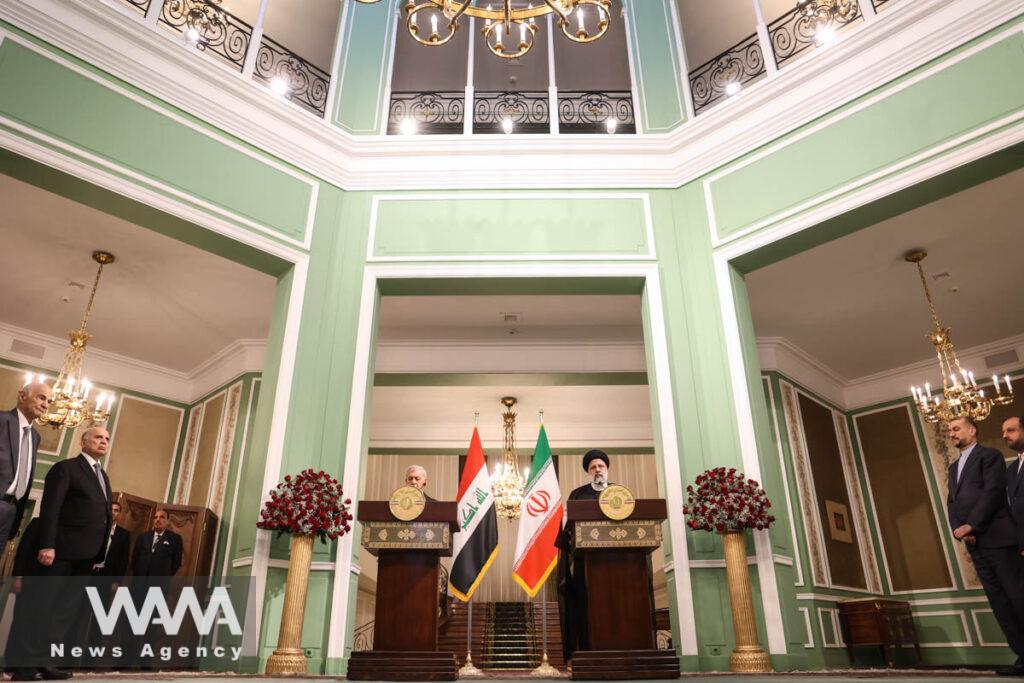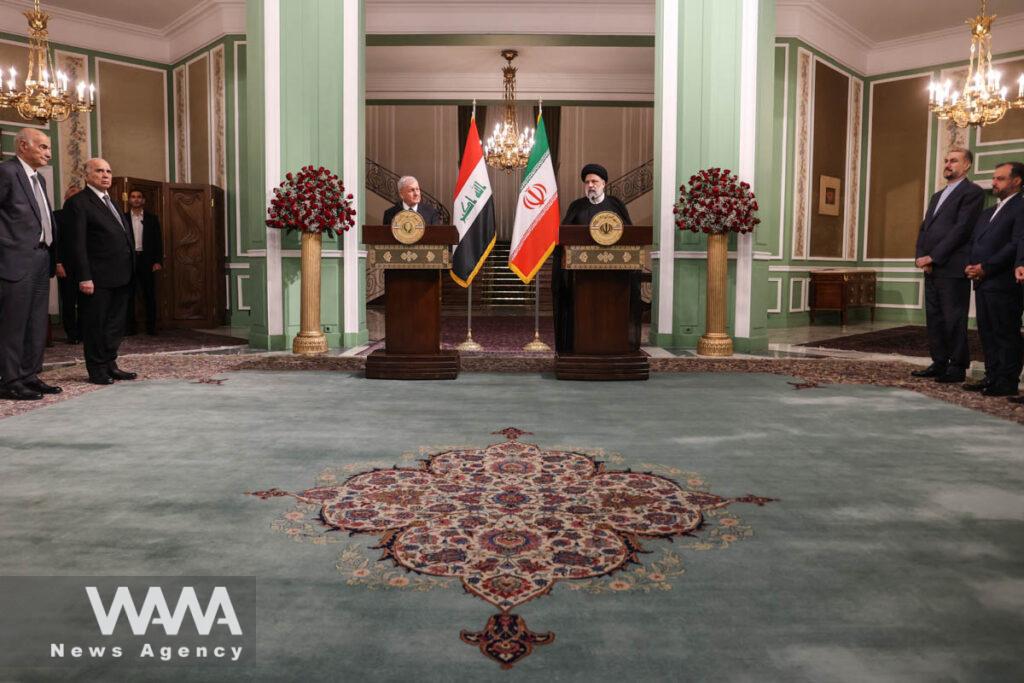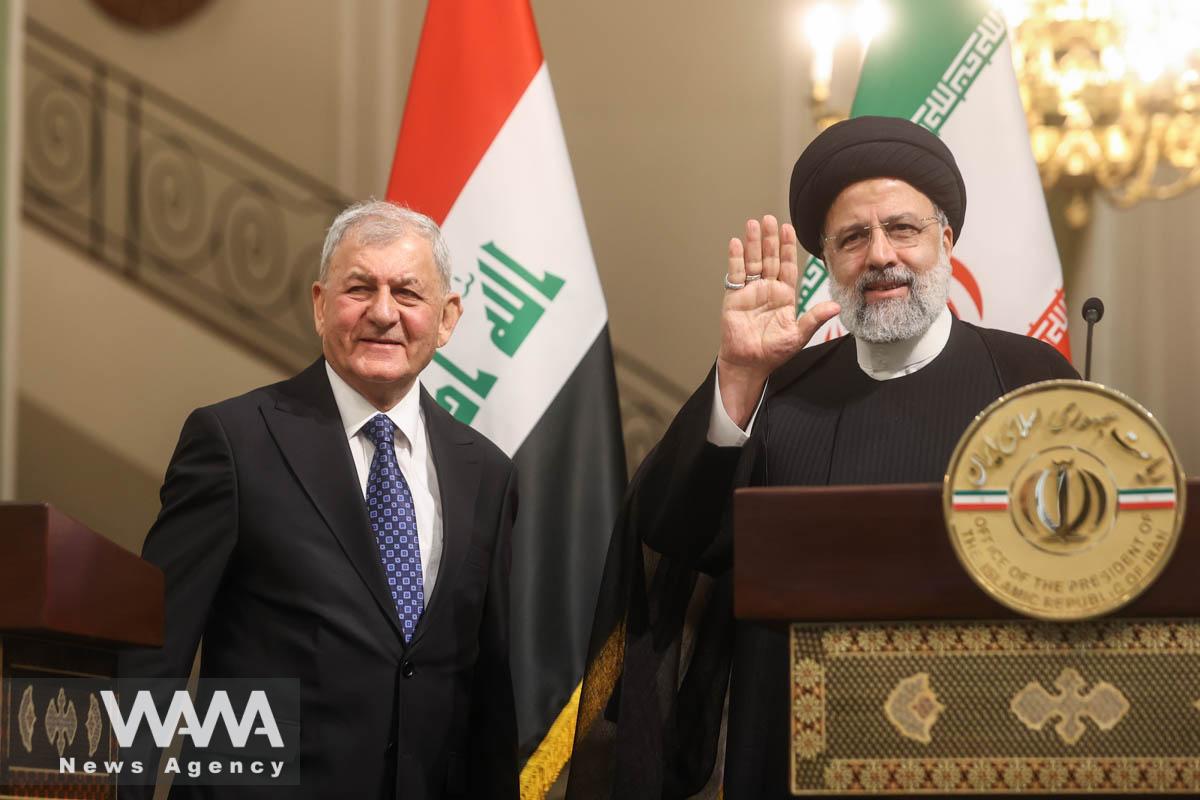President Raisi: The American force’s presence in ME does not create security
WANA (Apr 29) – in the joint press conference between President Raisi of Iran and Iraqi President, Abdul Latif Rashid, they both reiterated the fact that the presence of American troops in the region is not beneficial for both parties.
“Based on our security agreement with Iraq, any unrest in any part of Iraqi territory is deemed to be disquiet and unrest in Iran”, Raisi stated.
Iran has always been sensitive to the security in Iraq and considers any unrest in the borders of this country dangerous for itself.

Iranian President Ebrahim Raisi and Iraqi President Abdul Latif Rashid attend a news conference in Tehran, Iran, April 29, 2023. Majid Asgaripour/WANA (West Asia News Agency)
Iran’s objection against Baghdad has often been related to the presence of American forces in Iraq. Iran considers the American forces failed to provide security for the region in all the past years.
“We truly care about security in Iraq and we are sure the security pact between the two nations will tremendously help the overall peace and security in the region and American presence is harming the stability of the region… Our bilateral relations are based on common interests while the United States of America just cares about its benefits and interests” Iran’s President said.
The relations between Iran and Iraq are not limited to the government institutions. Iran and Iraq have a communal history, geography, and ethnic groups

Iranian President Ebrahim Raisi and Iraqi President Abdul Latif Rashid attend a news conference in Tehran, Iran, April 29, 2023. Majid Asgaripour/WANA (West Asia News Agency)
The ups and downs of Iran-Iraq relations
The relationship between Iran and Iraq has been complex and multifaceted over the years, shaped by several political, cultural, and religious factors.
Historically, the two countries have had a long-standing rivalry that dates back centuries, with frequent conflicts and power struggles over control of the region.
During the 1980s, Iran and Iraq fought a bitter and bloody war that lasted eight years and claimed hundreds of thousands of lives on both sides. The conflict was fueled by several factors, including territorial disputes, religious differences, and political tensions.
Since the end of the war, Iran and Iraq have had a complex relationship marked by periods of cooperation and tension. Iraq’s Shiite majority has historically had close ties with Iran, which is also a predominantly Shiite country. However, Iraq’s Sunni minority and Arab nationalist political leaders have been more wary of Iran’s influence in the region.












